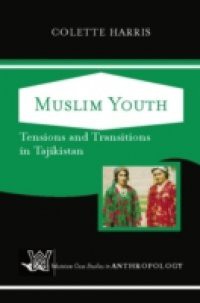Since the breakup of the Soviet Union, the peoples of Central Asia (Tajikistan, Kazakhstan, Kyrgyzstan, Turkmenistan, and Uzbekistan) have been exposed to new, Western influences that stress individualism at the expense Central Asian traditions of family and communalism. Young men in particular are exposed to new ideas and lifestyles as they travel in large numbers outside their native republics for the first time, even as contemporary Islam exerts itself as a potent force for cultural conservatism, especially for women. As a result, young Central Asians today confront a complex mixture of the old and the new that strains personal relations, especially within the family, between generations, and between spouses.Relying on the authors extensive fieldwork, Muslim Youth devotes separate chapters to family life, education, dating, and marriage and the family in Dushanbe, the capital of Tajikistan. Throughout the book, emblematic life stories vividly portray the hopes and concerns of Tajiks, teasing out the complexity of modernity versus tradition and individualism versus collectivism.

